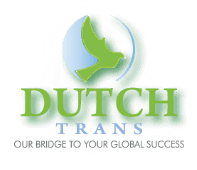
Steps to Secure a Certified Translator in the Netherlands
13 Apr Steps to Secure a Certified Translator in the Netherlands
Are you in need of a certified translator in the Netherlands? Whether you are looking to translate legal documents, business contracts, or personal records, finding the right certified translator is essential.
In this blog post, we will discuss the steps to secure a certified translator in the Netherlands, the qualifications to look for, the certification process, the cost of hiring a certified translator, how to prepare your documents for translation, and the legal and ethical considerations involved.
Need for a Certified Translator in the Netherlands
Engaging the services of a certified translator in the Netherlands is not just a preference but a necessity for ensuring the accuracy and professionalism of translated documents, particularly when dealing with official paperwork. The stakes are high with documents such as legal agreements, medical records, and government applications, where a single mistranslation can lead to misunderstandings, delays, or even legal repercussions. Certified translators bring a level of expertise and adherence to rigorous standards that is critical for these sensitive translations. Their certification signifies that they have undergone a rigorous evaluation of their translation skills and professional conduct, ensuring they are well-equipped to handle the intricacies and specific jargon of various document types. This certification is a seal of reliability, indicating that the translator not only possesses outstanding language proficiency but also understands the cultural nuances and legal frameworks that influence the translation process. In contexts where precision and fidelity to the original document are paramount, the role of a certified translator becomes indispensable. Their work transcends mere language translation, encompassing the faithful conveyance of the document’s intent, tone, and legal standing in both the source and target languages.

Recognizing the Qualifications of a Certified Translator
To identify a certified translator in the Netherlands who meets the high standards required for professional and accurate document translation, there are several key qualifications to consider. Initially, the translator must hold an official qualification or certification from a respected translation institute, demonstrating their mastery of both the source and target languages.
This ensures that they have the essential language skills, as well as a deep understanding of translation principles and practices.
Experience is another critical factor. A seasoned translator is likely to have a broad portfolio that includes various document types across multiple industries. This diverse experience means they can handle the specific terminologies and stylistic nuances required for accurate translations.
Additionally, a certified translator should be well-versed in the legal and cultural contexts that impact the translation process. This knowledge is vital for ensuring that translations are not only linguistically accurate but also culturally and legally appropriate for the intended audience.
It’s also advisable to seek a translator who continues to engage in professional development activities.
This commitment to ongoing learning indicates they are up-to-date with the latest in language trends, technology tools, and industry best practices, further ensuring the quality and reliability of their translation work.

How to Find a Certified Translator in the Netherlands
Locating a qualified certified translator in the Netherlands involves several strategic steps to ensure you’re engaging a professional with the requisite skills and certifications for your needs. A productive starting point is to utilize online platforms that list certified translators. Websites of professional translation associations in the Netherlands often have searchable databases where you can filter translators based on language expertise and specialization. Networking is another valuable tool; leveraging LinkedIn groups or forums dedicated to translation services can connect you with recommended professionals.
Additionally, reaching out to local embassies or consulates can provide leads, as they frequently have lists of certified translators for official document translation. Consulting with legal translation or professional services that regularly deal with international documentation may also yield recommendations for certified translators who have proven their competence and reliability in previous assignments.
It’s crucial to verify the credentials of any potential translator. This can typically be done by requesting copies of their certification, looking up their professional association memberships, and reviewing any client testimonials or reviews available. Engaging in a brief consultation or requesting a small sample translation might also offer insight into their capability to handle your specific translation needs. This thorough approach will help ensure you select a certified translator in the Netherlands who can accurately and efficiently meet your translation needs.
Understanding the Certification Process
The pathway to becoming a certified translator in the Netherlands involves a series of rigorous steps designed to ensure that the individual possesses not only exceptional linguistic skills but also a comprehensive understanding of the ethical and professional standards required for the role. To obtain certification, a translator must typically pass examinations that assess their language proficiency, translation ability, and knowledge of the specific legal and cultural nuances pertinent to their language pairs. These exams are often administered by recognized professional translation organizations or governmental bodies dedicated to maintaining high-quality translation standards within the country.
Once a translator successfully completes these examinations, they are awarded a certificate that officially recognizes their expertise and capability to provide certified translations. This certificate is a crucial document, as it validates the translator’s credentials to clients and institutions requiring certified translation services.
Additionally, certified translators are usually required to participate in ongoing professional development to keep their certification valid and stay updated with the evolving language and industry standards.
Furthermore, the certification process includes ethical training, ensuring that certified translators adhere to a strict code of conduct. This includes maintaining confidentiality, accurately representing their qualifications, and committing to impartiality in their translations. Understanding this comprehensive certification process provides insight into the rigorous standards and commitments that certified translators in the Netherlands adhere to, highlighting the trustworthiness and reliability of their services.
The Cost of Hiring a Certified Translator
The pricing for a certified translator in the Netherlands is influenced by several key factors, including the document’s complexity, the languages involved, and the urgency of the translation request. Since these elements can significantly impact the cost, it’s advisable to secure estimates from a few translators to ensure you receive a fair rate. It’s crucial, however, to balance the need for cost-effectiveness with the imperative for high-quality, accurate translation services. Low rates might not always guarantee the level of precision required for certified translations, particularly for documents of legal or technical nature. Additionally, be prepared for potential additional charges that might arise from the need for expedited services or handling highly specialized subject matter, which requires a more nuanced understanding and expertise. Engaging with a translator who offers a clear, upfront breakdown of their pricing structure can help you manage your budget effectively while ensuring your documents are translated accurately and professionally. Remember, investing in a reputable certified translator is investing in the assurance and reliability of your translated documents.
Preparing Your Documents for Translation
To ensure a smooth translation process with a certified translator in the Netherlands, proper preparation of your documents is key. Start by compiling all the materials that require translation. For the highest level of accuracy, it’s essential to provide documents that are in their final form to avoid any confusion or the need for retranslations. High-quality scans or clear photographs of original documents are ideal, as these can reduce the likelihood of misinterpretation due to poor legibility.
It’s also beneficial to organize your documents logically, especially if you’re submitting multiple files. Grouping them according to their type or relevance can aid the translator in understanding the context and maintaining consistency across documents. If there are any specific instructions, terms, acronyms, or jargon used within your documents that might not be widely recognized, preparing a brief glossary or explanatory notes can be extremely helpful. This preparation aids translators in capturing the precise meaning and nuance of your text.
In addition, if your documents contain sensitive or personal information, taking the time to inquire about the translator’s confidentiality policies before submission is crucial. This ensures your information is handled with the utmost respect and integrity throughout the translation process. Lastly, providing a reasonable timeline and clearly communicating any deadlines will help manage expectations on both sides, ensuring the translation is completed within your required timeframe.
Legal and Ethical Considerations
Navigating the realm of certified translations in the Netherlands requires a keen understanding of the legal and ethical framework governing these services. Confidentiality stands as a cornerstone of professional translation, ensuring that all personal or sensitive data is treated with the highest degree of privacy and security. When selecting a certified translator, it’s imperative to confirm that they adhere to strict confidentiality protocols, safeguarding your information throughout the translation process. Equally important is the legal compliance of the translated documents. The certified translator should be familiar with and able to accurately apply the legal standards and requirements specific to your documents’ purposes, whether they are intended for government, legal, medical, or any other official use. This diligence ensures that your translated documents are not only linguistically accurate but also fully compliant with the necessary legal regulations, thus avoiding potential legal challenges or complications. Understanding these legal and ethical obligations can greatly influence the successful outcome of your translation projects, providing peace of mind and establishing trust in the professional relationship.
FAQ’s
What is a certified translator in the Netherlands?
In the Netherlands, a certified translator is a professional who has been officially recognized and sworn in by a Dutch court. These translators are authorized to produce legally valid translations of official documents, such as birth certificates, marriage licenses, and legal contracts. Their translations are provided with a stamp, signature, and sometimes a declaration that certifies the accuracy of the translation.
Why might I need a certified translator in the Netherlands?
You might need a certified translator in the Netherlands for various official purposes. This includes immigrating to the Netherlands, marrying or divorcing in the country, studying, or working there. Certified translations are often required for documents not originally in Dutch, such as legal papers, educational diplomas, and certificates, to ensure they are accepted by Dutch authorities.
How can I find a certified translator in the Netherlands?
Certified translators in the Netherlands are registered in the Register beëdigde tolken en vertalers (Rbtv), a public register of sworn interpreters and translators maintained by the Bureau Wbtv. You can find a suitable certified translator by searching the Rbtv database online or contacting translation agencies that employ certified translators. Additionally, legal and governmental institutions may provide recommendations.
What should I consider when choosing a certified translator?
When choosing a certified translator, consider their expertise in the specific language and field relevant to your documents. Look for translators with experience in translating documents similar to yours. It’s also important to check their credentials and ensure they are registered in the Rbtv. Lastly, consider their turnaround time and fees to ensure they meet your needs and budget.
What is the process to get a document translated by a certified translator in the Netherlands?
The process generally involves contacting a certified translator and providing them with the original document or a high-quality copy. The translator will then produce a translation that includes their stamp, signature, and sometimes a declaration of accuracy. Once completed, the translated document is legally valid in the Netherlands for official purposes. It’s important to discuss timelines and costs upfront, as well as any specific requirements related to the document format or delivery.

